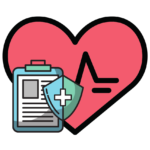Physical Address
304 North Cardinal St.
Dorchester Center, MA 02124

In the healthcare sector, medical billing and coders tremendously ease practitioners’ lives by handling their accounts. Medical billing is the process of ensuring healthcare practitioners receive payments for the services they perform. On the other hand, medical coding is the process of translating health and patient information into a universal code.
What is Medical Billing and Coding?
It is very important to understand what medical billing and coding are and how they bring changes in the healthcare industry. Medical billing and coding make for a smooth flow of revenue in the U.S. healthcare system. The trained medical billers and coders streamline the reimbursement cycle to make sure practitioners are getting their payments for the services and patients are billed properly.
Medical billers and coders’ foremost duties are to keep patient records, adjust charges, and review files. They deal with insurance claims accurately and properly. It is the medical biller’s duty to determine which codes end up on a patient’s bill for third-party billing purposes.
Coders use specialized coding classification systems to maintain standardized codes that relate to physicians’ diagnoses, processes, drugs, and other services. Here are some common classification systems, including Current Procedural Terminology, International Classification id Diseases (ICD-10-CM), and Healthcare Common Procedure Coding System (HCPCS) Level II.
Differences b/w Medical Billing & Medical Coding
Medical billing and medical coding are not identical tasks. Sometimes they overlap each other. Somehow medical billers deal with patient-facing billing, whereas coders stay behind the scenes.
How to execute Medical Billing
Medical billing includes creating bills, also called Claims, and sending these claims to health insurance companies and patients. If a patient has taken health insurance, a medical billing company sends it to health insurance companies. So, the insurance companies will recompense the healthcare providers. If patients do not have insurance, then medical billers directly send compensation to patients.
How to execute Medical Coding
When patients enter the healthcare facility, medical professionals keep a record of the services, medications, or procedures and also mention the reason for each service. The given details are known as clinical documentation.
It is a medical coder’s duty to analyze clinical documentation and link each service and procedure with its designated code. These codes play an identification role within a standardized coding system and maintain records of the services a provided during patient visits. Medical coders use these categories for coding:
Duties of a Medical Billing and Coding Specialist
Medical billers and coders have different duties to perform, but they may work together to resolve issues and manage communication between providers and insurance companies. Most medical coders work independently, while medical billers work with patients and insurers regarding claims and payments.
Both medical billers and coders possess:
I assume this post will help you understand the necessary grounds for medical billing and coding.


